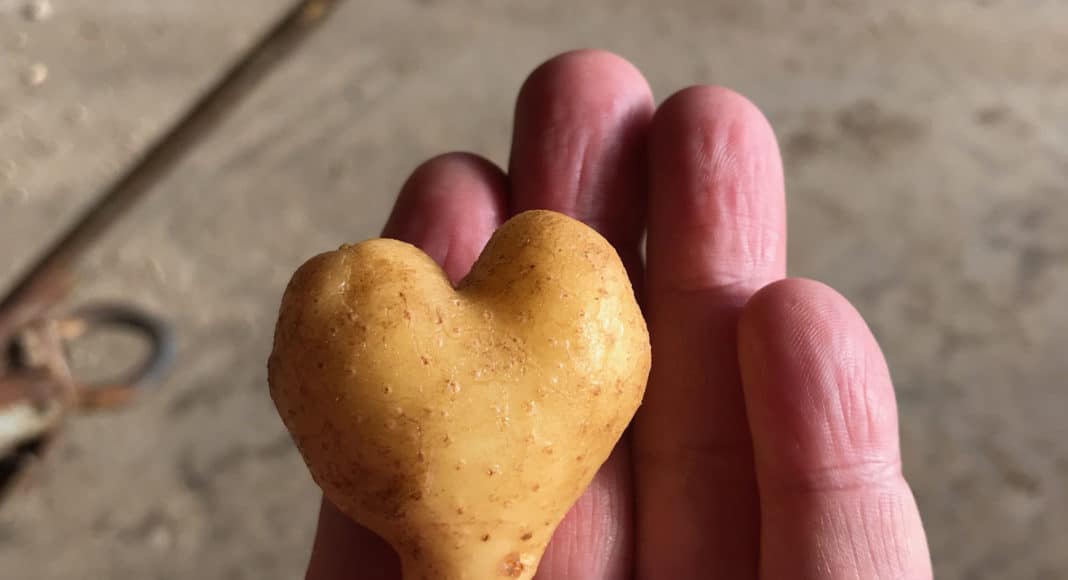As an agronomist and potato scientist, I’m always fascinated to hear the latest research from potato experts around the world. That’s why the TriCal Group’s Potato School with its focus on grower education is one of my favorite events. Held virtually in mid December, this last Potato School featured a number of top-notch speakers including Ken Frost, an associate professor in the department of botany and plant pathology at Oregon State University (OSU), who spoke about soil health findings from his recent soil fumigation trial. Here’s a snapshot of what he said:
In almost every way, today’s potato management practices are at odds with soil health. Rather than protecting soil structure, we significantly disturb soil during potato production. There’s very little crop residue left behind following a potato crop. Establishing a cover crop after a potato rotation can be very difficult. And, while biofumigants hold some promise, there just isn’t a long enough window at the end of the potato growing season to grow enough biomass to make a meaningful difference. One thing we can do is protect and promote soil microbial populations.
We’re currently in the midst of a four-year field trial (2019 – 2022) at OSU’s Hermiston Ag Research and Extension Centre in Hermiston, Ore. The trial compares Russet Burbank grown in non-fumigated and fumigated plots, using either Strike 100 (banded in hills at 100lbs/ac) or Vapam HL (metham sodium, broadcast at 40gal/a at 10 inches shank-injected) on both continuous potato and three-year rotations.
While yield only differed by nine per cent between the fumigated and non-fumigated treatments at the start of the trial, the differences are now becoming exaggerated as soil inoculum levels increase: fumigated plots produced over 50 per cent more than non-fumigated in 2021. In terms of disease, Strike seemed to do better than Vapam or non-fumigation on two key diseases: there was 30 per cent fewer Pythium spp CFU/g in the soil, and about 43 per cent fewer Fusarium spp CFU/g. Also noteworthy, non-fumigated plots senesced two to three weeks earlier than fumigated plots. Yet – and this is where the findings are particularly interesting – yield and plant senescence don’t correlate with soilborne pathogen inoculum densities. So what else is going on? We hope the soil microbiome information that we’re getting out of this trial will soon answer that.
Plants don’t grow in a sterile environment, nor would we want them to. In fact, soil microbes are a critical component of soil health and – ultimately – plant health. In addition to supporting soil structure, cycling nutrients, promoting a complex food web in the soil and more, microbes naturally suppress plant disease. The exact mechanics aren’t well understood, but it appears microbes help manage disease either by out-competing pathogens for plant-derived nutrients, by producing compounds that harm pathogens, or even by priming the potato plant itself to better protect itself from pathogens.
Maintaining soil function, made possible through a healthy microbial population, is the single factor that corresponds most with long-term sustainability of the soil. If we can find soil fumigation compatible with long term soil functioning, then soil fumigation and sustainability can be compatible functions.
I’m excited to watch for next year’s findings from Ken’s work, but I’m not surprised by the results. Our own internal trials show Strike is a holistic, sustainable option that’s not only highly effective against many disease pathogens and nematodes, but also actively promotes soil microbial populations and soil health. To view the presentations from Potato School, including Ken’s, visit our website.
Related Articles
What’s Biting into Your Farm’s Economic and Environmental Sustainability?
Managing the Good and the Bad of Soil Microorganisms
Sustainability = Environmental Stewardship, But Economic Success Too








